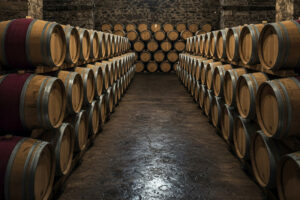
One of the most complicated but decisive challenges facing viticulture is climate change. This can also be seen in the current summer, with extremely high temperatures causing concern in some areas, as well as sudden and violent rainfall following heat waves. To combat climate change, the wine world is increasingly looking to innovation with the aim of achieving sustainable and resilient viticulture. This issue was addressed by Crea at the conference “Water resource management for sustainable viticulture”, organized with the Center for Policy and Bioeconomics, University of Sannio, the Irpinia Sannio Chamber of Commerce, and Siea (Italian Society of Agri-Food Economics), for “Territories, Food, and Society: Between Global Challenges and Complexity”, a series of events held in recent days in Benevento, promoted by the Italian Society of Agricultural Economics (Sidea), Siea, and the Center for Studies in Appraisal and Territorial Economics (Ceset).
At the heart of the matter is the consideration that vine irrigation is taking on an increasingly crucial role in the context of climate change, even though, to date, production regulations only allow for emergency irrigation. Irrigation is also a reality in Italy, one of the world’s leading wine producers, with its unique biodiversity of over 500 native grape varieties and 225,000 hectares of irrigated vineyards, accounting for 9.5% of the total irrigated area (2.5 million hectares). The average water requirement of vines is about 4,000 cubic meters/hectare per season, varying according to the cultivation system and variety, explains Crea. The most common irrigation techniques are drip micro-irrigation (21.5%), sprinkler irrigation (38%), surface runoff, lateral infiltration, and submersion (40.5%).
However, the situation is not uniform across Italy’s vineyards: In particular, in Campania - according to the reworking carried out by Crea with its Center for Policy and Bioeconomics from the data of the latest Istat 2020 Census - only 1.17% of vineyard areas are irrigated: a selective and targeted use, growing especially in Irpinia and Sannio, where there has been a sharp increase in the number of quality wine producers (from 267 in 2010 to 817 in 2020). Almost all (approximately 99%) of Campania’s wine-producing companies still depend on natural rainfall.
According to Crea, “in a context where production regulations prohibit forced irrigation but allow emergency irrigation (Law 238/2016, Art. 35), it is becoming increasingly urgent to adopt effective irrigation strategies to cope with water scarcity, while respecting quality and the environment. The two main techniques allowed are overhead irrigation (sprinkler irrigation) - less expensive but with greater phytosanitary risks - and subsurface irrigation (drip and subirrigation), which is more efficient and sustainable but has higher initial costs. A further frontier for modern viticulture is represented by Controlled Water Deficit (Rdi): a technique that involves managing moderate water stress to improve grape quality, optimize water use, and adapt to climate change”.
President Crea, Andrea Rocchi, emphasized that “the future of wine depends on water. Protecting it means protecting our identity. In a context marked by increasingly evident climate change, sustainable water resource management is no longer a choice but a strategic necessity. Italian viticulture, with its extraordinary biodiversity and cultural and economic value, is now faced with an epochal challenge: producing quality, protecting the territory, and reducing environmental impact. It is our duty, as a public research body, to provide scientific tools, technological solutions, and support to agricultural businesses to ensure the resilience and competitiveness of the wine sector”.
In recent years, Mediterranean wine-growing regions have been undergoing profound changes due to climate change: increasingly frequent droughts, extreme heat waves, and water shortages threaten the resilience of the land, the productivity of vineyards, and the entire wine supply chain. The Mediterranean basin has been particularly affected, considered a real climate hot spot, where, as Crea points out, there are already clear effects on the physiology of vines, the quality of grapes, and the sustainability of traditional agricultural practices.
Copyright © 2000/2026
Contatti: info@winenews.it
Seguici anche su Twitter: @WineNewsIt
Seguici anche su Facebook: @winenewsit
Questo articolo è tratto dall'archivio di WineNews - Tutti i diritti riservati - Copyright © 2000/2026